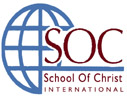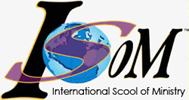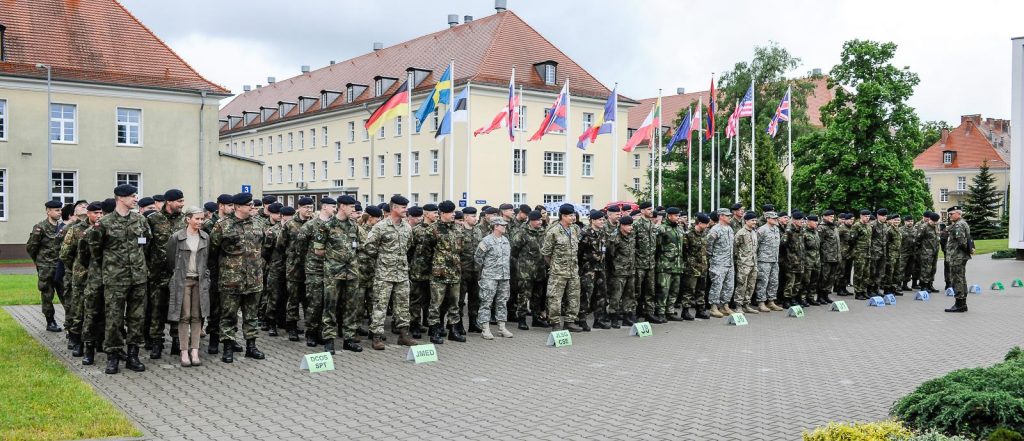Bulgarian Chaplaincy Association: Integration Proposal with Local NATO Programs
 Bulgarian Chaplaincy Association: Celebrating a Decade of Ministry
Bulgarian Chaplaincy Association: Celebrating a Decade of Ministry
We are proud to announce that the Master’s of Chaplaincy Ministry Program, we designed and launched in Bulgaria in 2006, has been selected to be part of the Social Service Program of New Bulgarian University. After being for years a valuable part of the regular curriculum of the Bulgarian Evangelical Theological Institute and the St. Trivelius Institute in the capital Sofia, the chaplaincy program has received the highest level of recognition as successful graduates will be finally able to receive government recognized degrees and apply their knowledge and training in chaplaincy on a professional level. The chaplaincy program can also serve within the Integration Proposal of local NATO programs and be instrumental in dealing with the enormous wave of Middle East migrants crossing through Bulgaria today.
Although the Bulgarian Chaplaincy Association emerges from and ministers within the Bulgarian cultural context, it is designed for integral cooperation with organizations of various origins. This advantage comes from the experience of previous working relationships that the organizations represented within the Association have had with other non-Bulgarian organizations. The vision, structure and operation of the Association incorporate and comply with western styles of chaplaincy work on three levels (1) cultural, (2) educational and (3) governmental.
The cultural heritage of the Bulgarian Chaplaincy Association represents a valuable environment for integration of NATO forces within the local cultural setting. On a cultural level, various events and activities such as English speaking church services, fellowship of soldiers with local communities, hospitals, orphanages and other cultural experiences are available. Humanitarian aid projects are among the most efficient manner for integration within the local community.
On an educational level, there are possibilities on both sides. For example, Bulgarian language courses for the soldiers and English language courses for the local community could be implemented. The most important element within the education strategy perhaps may be education of chaplaincy workers, especially in the current context when Bulgaria is in a need of trained crisis counselors for cases of floods and other natural disasters. Finally, local and national government relations will assist in the change of the status of chaplaincy within the Bulgarian Army. Such an approach will have positive political implications, as chaplaincy becomes a mediator between the army, church and government.
The presented proposal integrates religious moral issues along with socio-political principles in the idea for chaplaincy within the Bulgarian Army. The implications of these principles project involvement of local NATO units in partnership with local Bulgarian organizations. In the case of chaplaincy within the Bulgarian Army, the proposed organization is the newly established Bulgarian Chaplaincy Association. Although political, social and economical issues remain in the scope of its work, the Association’s main priority is the renewal of spirituality within the army structure through cutting-edge chaplaincy ministry beyond the ecclesial gates into a world of war and insecurity. The Bulgarian Chaplaincy Association acts as an agent of spiritual restoration targeting morality within the Bulgarian Army with the Bulgarian chaplain as the key element in this process. For an army without spirituality is no army at all.
Also important [click to read]:
- U.S. Department of State recognizes our chaplaincy efforts in Bulgaria
- Bulgarian Chaplaincy Association: Integration Proposal with Local NATO Programs
- Bulgarian Chaplaincy Association: Vision and Resolution
- Chronology of our role and involvement in developing Church of God chaplaincy in Bulgaria since 2001
- Master’s of Chaplaincy Ministry Program in Bulgaria Reflections
- The Past Decade of Chaplaincy in Bulgaria (2006-2016)
- Related Publications and Presentations by Cup & Cross Ministries International
Mobile Bible School in Bulgaria Implements Three Online Programs
As our Mobile Bible School demands constant upgrade and the addition of various new modules, we have been able to implement three complete Bible training schools available in the Bulgarian vernacular within our program. They are presented as media resources to the students and now we have been successful in posting them online to a larger audience, which has interest in them. This include church pastors and independent churches, lay ministers and ministry teams, all the way to the common folk who want to learn about the Bible. These three programs have been historically present in Bulgaria since the Fall of the Berlin Wall in 1989 and it is our hope that with their internet presentation they will continue to serve for the purpose of ministry training. They are:
 1. Oasis of Love Bible School which was taught in Bulgaria by American missionary Keith de Mayo and his colleagues in 1990-1994. After the Fall of the Berlin wall, Oasis of Love became the first major ministry training center on a national level in the capital Sofia. Several hundred ministry students finished the school and entered the ministry by 1994. We were blessed to be able to gather the recordings of the lessons and publish them online. (icon)
1. Oasis of Love Bible School which was taught in Bulgaria by American missionary Keith de Mayo and his colleagues in 1990-1994. After the Fall of the Berlin wall, Oasis of Love became the first major ministry training center on a national level in the capital Sofia. Several hundred ministry students finished the school and entered the ministry by 1994. We were blessed to be able to gather the recordings of the lessons and publish them online. (icon)
 2. The School of Christ International directed by Rev. B.H. Clendennen (May 22, 1922 – December 13, 2009) was introduced in Bulgaria around 2000-2001 and for a brief time received great attention, especially among the Roma Gipsy churches of Southwestern Bulgaria. It introduced a new approach to Bible training through media resources, which were flexible to present and easy to replicate in the local church, thus becoming an important training device for the ministry in the Bulgarian context. (icon)
2. The School of Christ International directed by Rev. B.H. Clendennen (May 22, 1922 – December 13, 2009) was introduced in Bulgaria around 2000-2001 and for a brief time received great attention, especially among the Roma Gipsy churches of Southwestern Bulgaria. It introduced a new approach to Bible training through media resources, which were flexible to present and easy to replicate in the local church, thus becoming an important training device for the ministry in the Bulgarian context. (icon)
 3. International School of Ministry (ISOM) is a largely recognized training tool for churches around the globe. It comprises the teachings of leading ministers and renowned theologians, who have gathered together in one team to impart to a next generation what they have learned about the ministry. The chosen theme series covers virtually every aspect of Christian ministry and are invaluable training tools for both ministers and members within the local church (icon)
3. International School of Ministry (ISOM) is a largely recognized training tool for churches around the globe. It comprises the teachings of leading ministers and renowned theologians, who have gathered together in one team to impart to a next generation what they have learned about the ministry. The chosen theme series covers virtually every aspect of Christian ministry and are invaluable training tools for both ministers and members within the local church (icon)








